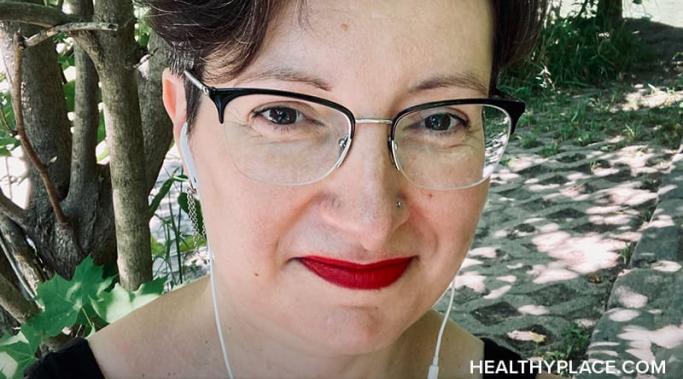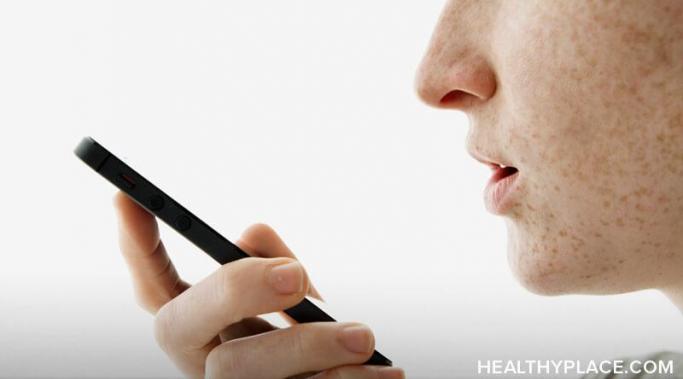Blogs
There’s so much information online about the negative side effects of living with borderline personality disorder (BPD) and very little about BPD superpowers. Yep, that's right -- if you or someone you know has BPD, they, or you, probably have superpowers. In this article, I get into one aspect I love about my BPD-having self.
Have you heard of worry time? As someone who struggles with anxiety, I have been getting more anxious about the future than ever. This fear and worry seep into everything I do at all times of the day. From waking up to going to work and then back to bed, my mind is constantly filled with anxious thoughts about what the future will look like for me. This interferes with my daily life and makes me feel mentally exhausted. To cope with this, my therapist recently introduced me to a technique that involves allocating a "worry time." This involves me picking out a time during my day that is specifically dedicated to worrying. While this sounds like a strange concept, it has greatly benefitted me.
Energy can be low or nonexistent when you have mental health struggles. For me, I generally have less energy to begin with, and, often, day-to-day activities—even simple interactions or tasks—can drain my battery to red. When my depression and anxiety are running rampant, it can feel like every gauge goes into the negative.
My name is Mel Bender. I’m thrilled to be joining HealthyPlace as an author for the Relationships and Mental Illness blog. I’m a freelance writer, blogger, and artist living in Toronto, Canada.
Over the past several months, I've been writing about ways to boost self-esteem at a comfortable pace. I find that working at your own speed and setting achievable goals will help set anyone up for self-esteem success. Today, I'd like to talk about something different I tried recently. I want to talk about how challenging myself affected my self-esteem.
Recently a friend ruined my mental health. Well, a friend combined with preexisting bipolar disorder, ruined my mental health. I don't believe in blaming people for mental health problems, per se; but, sometimes people do things that are so damaging, a change in mental health really is pretty much their fault. So, what do you do when a friend ruins your mental health?
This might seem like a bold, hyperbolic claim, but it just so happens to be true: I have no regrets about my eating disorder. Of course, there are some behaviors I am not proud of, relationships I have worked fiercely to restore, and memories I still flinch at. But in terms of actual regret, I simply think it's a wasted emotion. While I have absolutely no desire to relive those 15 years of battling anorexia, this formative chapter in my life transformed me into who I am right now—a person for whom I feel genuine love and respect. So if you'll indulge me for a few minutes, I will unpack why I have no regrets about my eating disorder.
On July 16th, 2022, the new three-digit Suicide and Mental Health Crisis Hotline went into full effect. The transition from a 10-digit number to the more convenient and memorable 988 is a positive step toward adequate and widely-accessible mental health resources for all. Moreover, the hotline is no longer solely for suicidal individuals but open to anyone facing a mental health crisis. The overall messaging behind this change is perhaps the most impactful. We hear you; we see you; we'll show you not only through our words but through our actions.
Many individuals, including myself, can take notice of subtleties later when they are no longer the object of verbal abuse. It shocks me as I look back and replay many of these instances in my head. There were several reasons why, however, I never recognized it as abusive, which led me to remain in the same situation for years.
Premenstrual dysphoric disorder (PMDD) is the first major mood disorder I suffered from as a kid. However, I did develop early symptoms of bipolar disorder as a teen as well, and that later led to schizoaffective disorder, bipolar type. Premenstrual dysphoric disorder is a very extreme form of what is commonly known as premenstrual syndrome (PMS). Untreated, I don’t have minor bouts of irritability or sadness during my period--I have full-on depression accompanied by suicidal thoughts. The way I treat my PMDD is with birth control pills.









